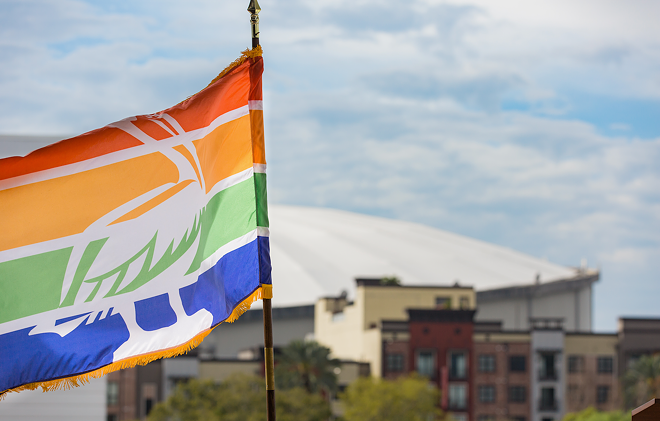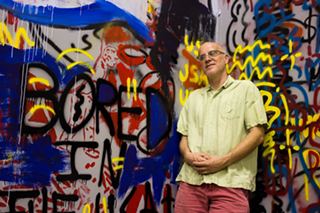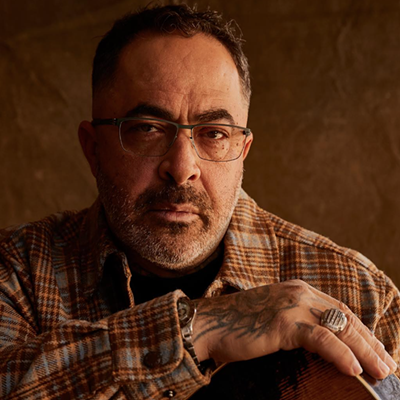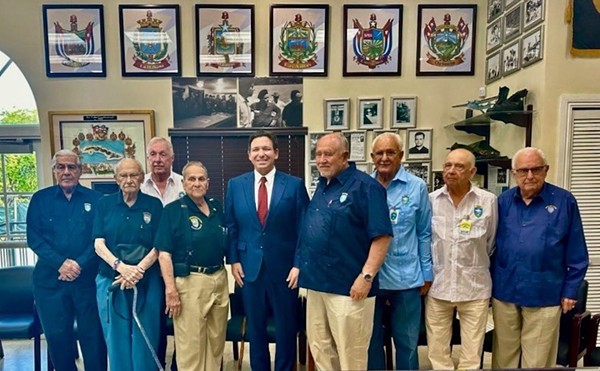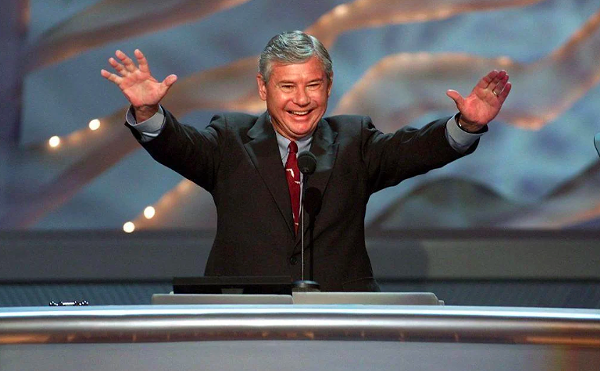From a view of decades, the story is damning. African-Americans arrived in St. Petersburg with the Orange Belt Railroad, and despite their missing names on historical markers, they effectively built this city. Segregation laws, passed in the 1930s, kept Black folks to neighborhoods with colorful nicknames—Pepper Town, Methodist Town, the Deuces and Gas Plant. Over time they developed their own thriving businesses, churches, and clubs.
During the 1970s, Interstate-175 leveled well-constructed homes of doctors, teachers, pastors, dentists, professionals, and entrepreneurs along Fifth Avenue South. Ten years later, the city razed Gas Plant, the adjacent and poorer section of town. The city first promised light industry then built a domed stadium—for a baseball team that did not even exist.
Fast forward a few more decades. Seats remain empty at Tropicana Field, the Tampa Bay Rays threaten to leave, and baseball or not, the city will implode the dome and develop a new community over the 86-acre Tropicana Field site.
Mayor Rick Kriseman, writing in the Tampa Bay Times, calls this an "an unparalleled, generational opportunity." He promises inclusive collaboration with local partners, jobs, mixed-income housing, and a street grid that reconnects downtown with the geographically severed Southside.
But there is cause for doubt. Architectural renderings, to date, propose restoring east-west arteries (not so much the vital north-south connectors). Kriseman gushes over spaces for "research and innovation," plus hotel and conference venues. Who will benefit from the new Gas Plant plan?
The history of this place hurts.
The community's destruction started with the interstate, which the city rightly hopes to trim back. Following a nationwide pattern, the highway first bowled through St. Petersburg's African-American community, leveling the fine homes on what was affectionately called "Sugar Hill." Savvy residents understood property values, and several owners negotiated against "eminent domain," but the loss remains.
The hole in the city core is personally felt. "I cannot take my children and show them," long-time resident and St. Petersburg griot Gwendolyn Reese tells Creative Loafing Tampa Bay. "The church where I was baptized and married is no longer there. The building my parents lived in is no longer there."
Black churches, raised by the hands of individual congregants, no longer stand.
A parking lot now occupies the site of McCabe United Methodist Church, where 175 exits onto Dr. Martin Luther King Jr. Street South.
"Black people got together," McCabe pastor Jana Hall-Perkins recounts, "pooled their resources and physically built, brick by brick, this place of worship."
But the building is gone.
"So what kind of message does that send—spiritually, emotionally, psychologically—to the people who worked for free? That now, in place of a community they called home, is a parking garage?"
There is an adage, fool me once .... Local historian Gary Mormino likes to cite a quip by Mark Twain—that history does not repeat itself, it rhymes.
Held against promises made 40 years ago, today's plans for the Gas Plant raise red flags. In the 1980s, the city promised "light industry"; instead the people got a stadium. The "urban renewal" meant 285 buildings bulldozed, 500 households leveled, businesses closed, at least nine churches relocated.
The betrayal was palpable. All to easy for city government to gloss or ignore, the obligations remain.
"When you went into this area and moved out all the people, you said you were going to rehabilitate and create light industry and create jobs," said David Welch, one of the city's first Black council members. "You have a moral obligation to those individuals who were moved out for what you have told them."
In 1963, Martin Luther King, Jr. reminded us all that white "America has given the Negro people a bad check, a check which has come back marked with 'insufficient funds.'" Today a city with the street that bears King's name holds the resources to make good on that debt. The 86-acre Gas Plant site, first and foremost, should redeem our past default.
Mayor Kriseman and planners regard this site as a once in a generation chance. And they are right. Few issues in the United States are as emotionally fraught, or difficult to transact, as reparations. The single most pressing quality of life problem in St. Petersburg remains racial inequality; poverty is hardscaped onto our city street grid. The future Trop site has already been studied and workshopped to death, though before moving forward, I propose three steps:
- Acknowledge egregious mistakes. With the earlier promises for Gas Plant redevelopment, the city gave the Black community (what Gwen Reese calls) a "straight up lie." The current administration did not commit these lies; they are not at fault for their forefathers' crimes. But as representatives of the city today, they have a "moral obligation" to explain--in no uncertain terms--what happened.
- Apologize. This one is easy, once you face the hard truth. Call a press conference. Set up a podium on the steps of City Hall. Say to those who lost their homes and businesses and churches to the highway, parking lots and unwanted stadium, "I'm sorry."
- Convene church leaders. Several relocated religious communities survive to this day. Why not meet privately with ministers from those churches? Outside the glare of focus groups or public hearings, the clergy may offer a healthy, healing perspective. The Black church has a long record of speaking Truth to power, and offers a conduit to people's unvarnished memories. Ask our pastors, "how should we move forward?"
The 86-acre Tropicana Field is indeed the opportunity of a generation. More than a hotel or festival space, more than the live-work-play formula, bike trails or access to a creek that is very prone to flooding, we need to undo a harmful past. The city did wrong. We now have a chance to fix what we broke.
Mayor Kriseman, make it so.
Creative Loafing welcomes back Thomas Hallock’s monthly “City Wilds” column. Hallock wrote this essay at the Clayton, Georgia home of civil rights author Lillian E. Smith.

